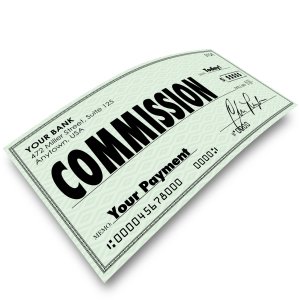Here is a partial list of the cash it takes to be a real estate agent:
Before you stick that first “For Sale” sign in a yard, or show that first home to a potential buyer, you’ll need to spend between $1,500 and $2,000. You’ll need to enroll in a real estate class, typically from a state accredited provider. The costs will vary. In California, for example, courses range from $200 to $700. Once you’ve finished the course, you’ll need to take the licensing exam. In California, the licensing exam fee is $60 see the updated California Real Estate Licensing Fees. Many states also require fingerprinting and background checks, which range in cost.
Realtor Association Fees
You don’t have to join the local association of Realtors in your area, however, membership has its benefits. Members of the association sign a code of conduct, and typically, its board has a regulatory authority over its members. Your fees may include membership in a local organization as well as a state organization. If you live in a metropolitan area that bisects more than one state, you may have to pay membership fees to more than one state or locality. Your local Realtor association also hosts a multiple listing service, or MLS, allowing other agents to peruse the listings of their peers. There is an annual membership fee to join the association. In most places, the fee costs between $200 and $500 per year. Real estate agents pay this fee once each year.
Multiple Listing Service Dues
You’ll have to be a member of the local association to use your area’s multiple listing service. In addition to the association membership fee, you’ll also need to pay an annual fee to subscribe to the MLS, As the listing service is linked to a geographic area, these fees vary by location.
Agency Fees
Real estate agents who are just starting out must either obtain a broker’s license themselves, or work underneath the supervision of an established brokerage. Many brokers will require that real estate agents contribute to office and franchising costs, and they do this in a variety of ways. The most common ways are to charge a monthly “desk” fee regardless of the agents production, or instead they’ll charge a % of each transaction the real estate agent closes.
Equipment Costs
You’ll have some access to office equipment, but you’ll also need a top of the line mobile device and associated data plan. What’s more, you’ll also need a durable and efficient laptop, as well as a high end camera (nope, that one on your phone isn’t going to cut it) to take listing photos. Yard signs, open house signs, lockboxes and lockbox keys also come with the territory.
Error and Omissions Insurance
This insurance protects you if a real estate contract or issue winds up in court. Costs vary per area and per brokerage.
Real estate agents typically spend $3,000+ to become licensed and start their business. Agents will spend far more each year on marketing and general expenses to keep it going. Though costs vary from agent to agent and state to state, a commission advance service is one way to help fight the challenge of consistent expenses and, at least in the beginning, income that takes a while to become consistent.







